Don’t invest unless you’re prepared to lose all the money you invest. This is a high‑risk investment and you should not expect to be protected if something goes wrong. Take 2 mins to learn more.
Buy Loopring (LRC) in UK With GBP | CoinJar
Loopring
LRC
Overview
What is Loopring?
Buy Loopring: Loopring is an Ethereum zkRollup exchange and payment protocol. But what in the world does that mean? Let’s break it down.
Loopring and Ethereum
First, we need to understand Ethereum. It’s a blockchain platform that allows developers to create decentralised applications (dApps) and smart contracts. Think of it as a global computer where transactions are transparent and protected.
What is a zkRollup?
This term might sound a bit technical, but hang in there. zkRollup is a scaling solution for Ethereum. It stands for “Zero-Knowledge Rollup.”
Essentially, it bundles many transactions together and submits them to the Ethereum blockchain as a single batch. This significantly reduces fees and speeds up transactions.
Exchange and payment protocol
Loopring combines the benefits of zkRollup with an exchange and payment system. It’s a crypto exchange where you can trade tokens and make payments.
Why buy Loopring?
Competitive fees
Loopring transactions cost a fraction of what you’d pay on the regular Ethereum network. This makes it attractive for traders and anyone who wants to move crypto around without breaking the bank.
Speed
Remember those slow Ethereum transactions? Loopring fixes that. It processes thousands of transactions per second.
Protection
Loopring’s zkRollup technology ensures that your funds are protected.
LRC Token
Loopring’s native token is called LRC. People buy LRC for various reasons.
-Staking: You can stake LRC to earn rewards.
-Governance: LRC holders can vote on protocol upgrades.
-Trading: Some people trade LRC for investor return.
How does Loopring work?
Aggregators
Imagine you want to swap your Ethereum for another token. Instead of going to a single exchange, Loopring aggregates liquidity from multiple sources. This means better prices.
Order rings
When you place an order, Loopring creates an “order ring.” It matches your trade with other users’ orders to get you the most effective deal. It’s like a crypto matchmaking service.
zkRollup batches
Loopring bundles all these orders into a zkRollup batch. This batch is then submitted to Ethereum, saving gas fees and ensuring protection.
Why investors buy Loopring: Conclusion
Loopring is effective and competitive. People buy LRC tokens to participate in this ecosystem.








Cash, credit or crypto?
Buy Loopring using Visa or Mastercard. Get cash in your account with Faster Payments Service (FPS). Convert crypto-to-crypto with a single click.How to buy Loopring with CoinJar
Start your cryptocurrency portfolio with CoinJar by following these steps.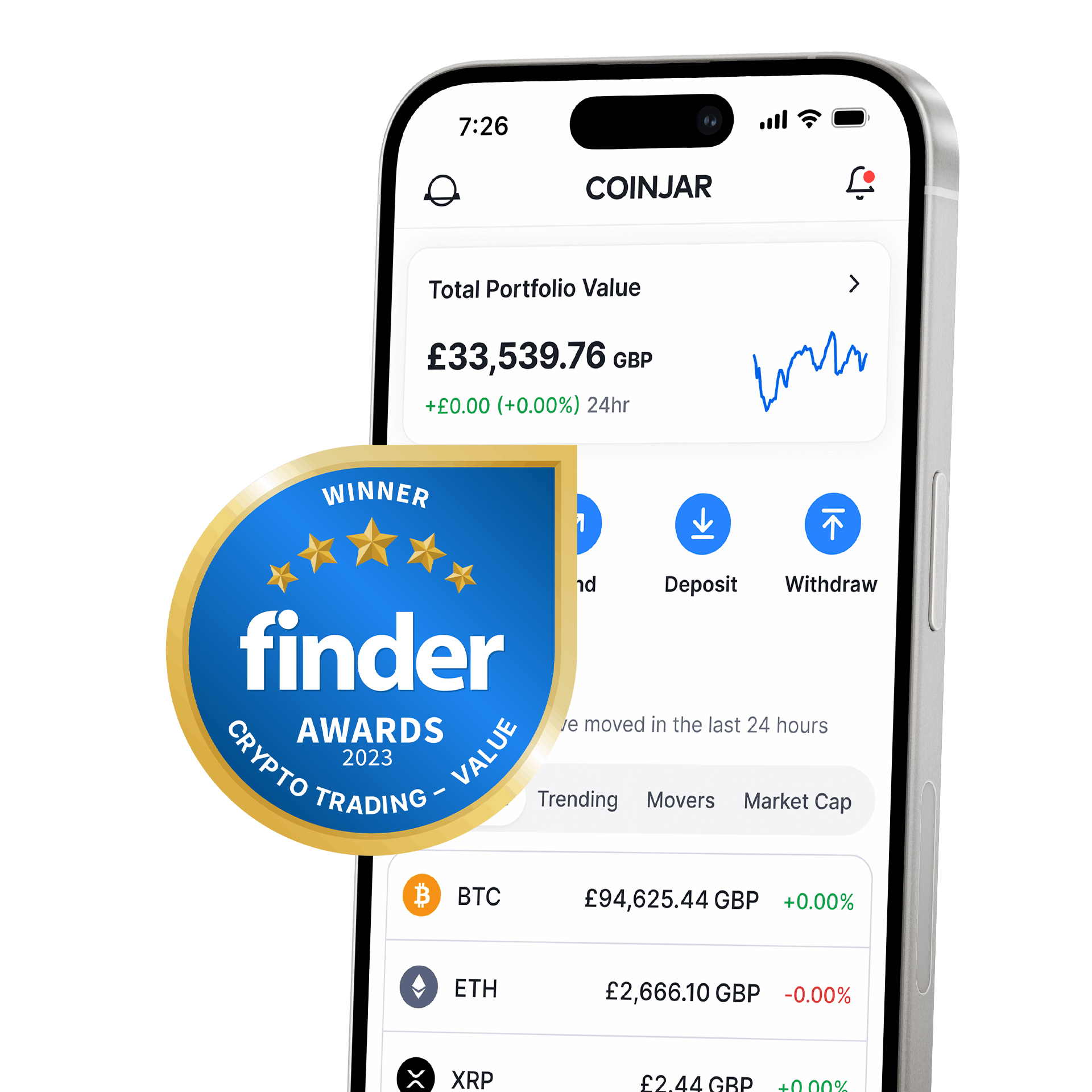
Finder Awards Winner 2023
CRYPTO TRADING - VALUEFinder Awards Winner 2023
CRYPTO TRADING - VALUE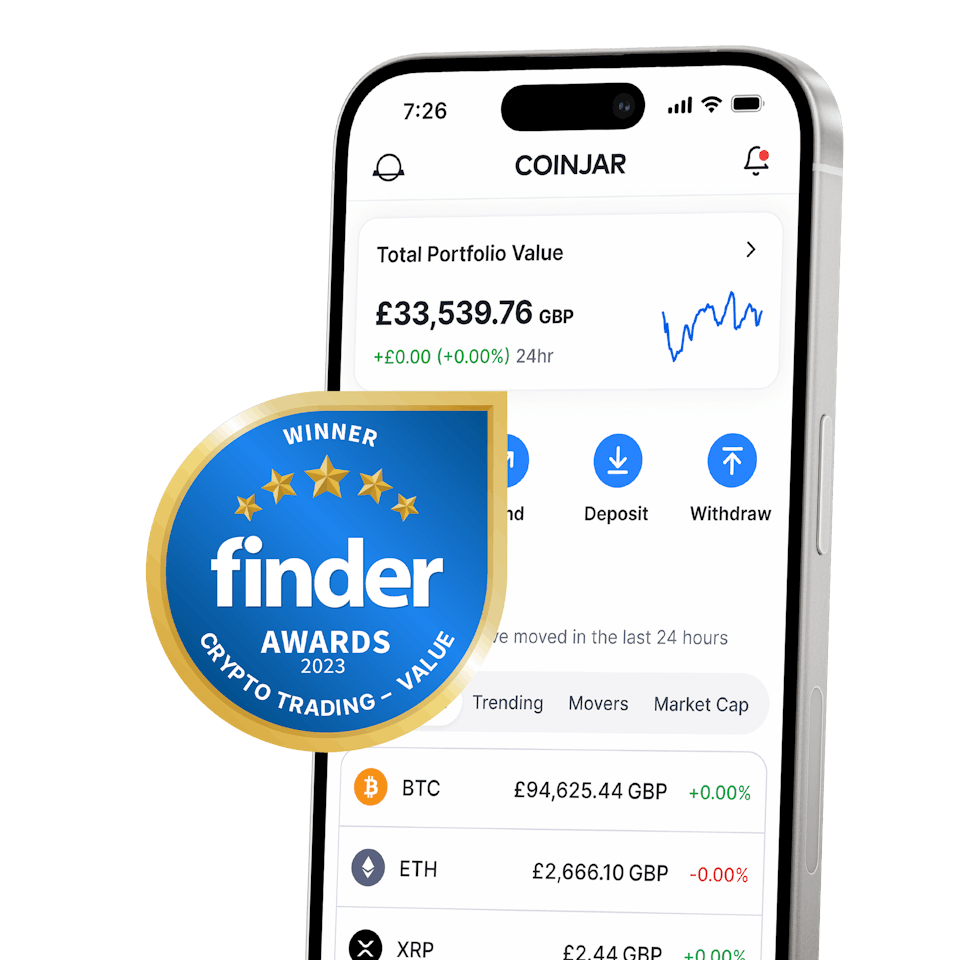
Featured In

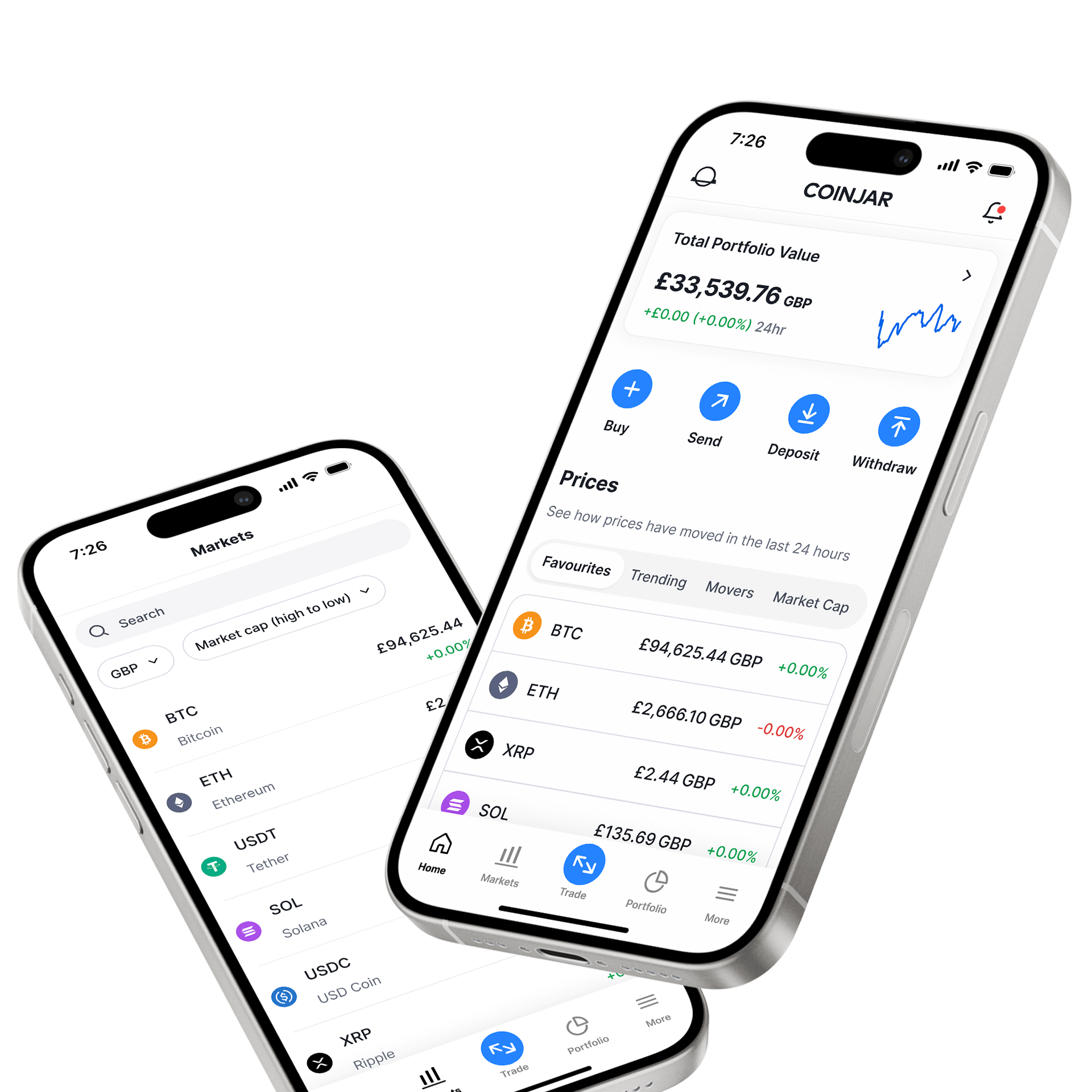
CoinJar App
All-in-one crypto walletCoinJar App
All-in-one crypto wallet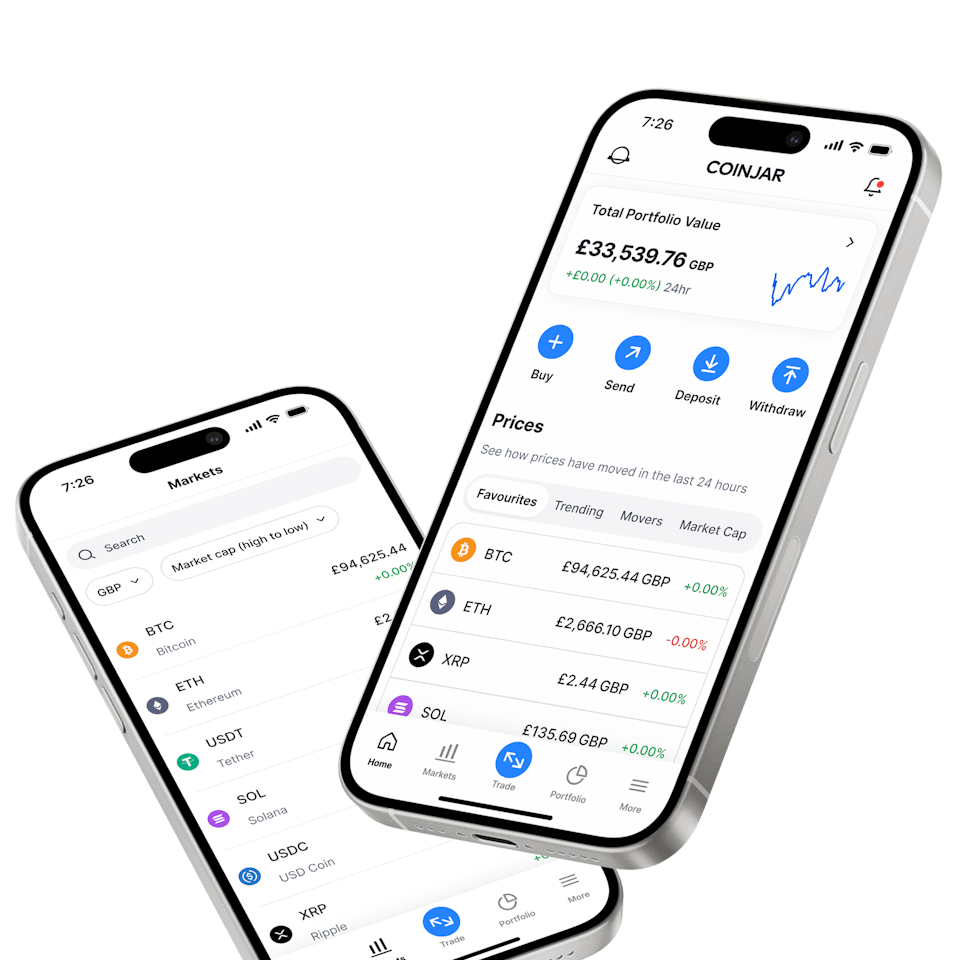
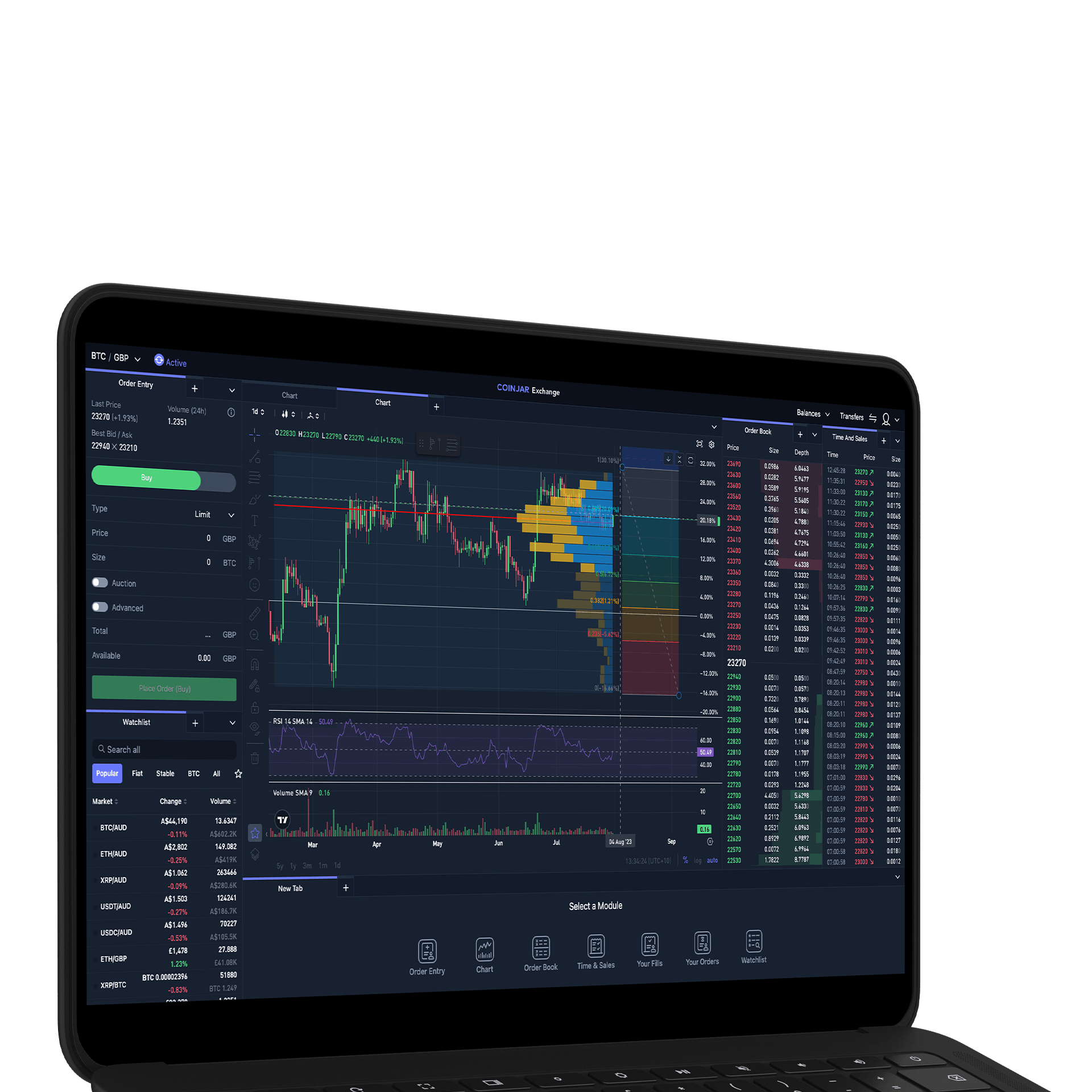
CoinJar Exchange
FOR PROFESSIONAL CRYPTO TRADERS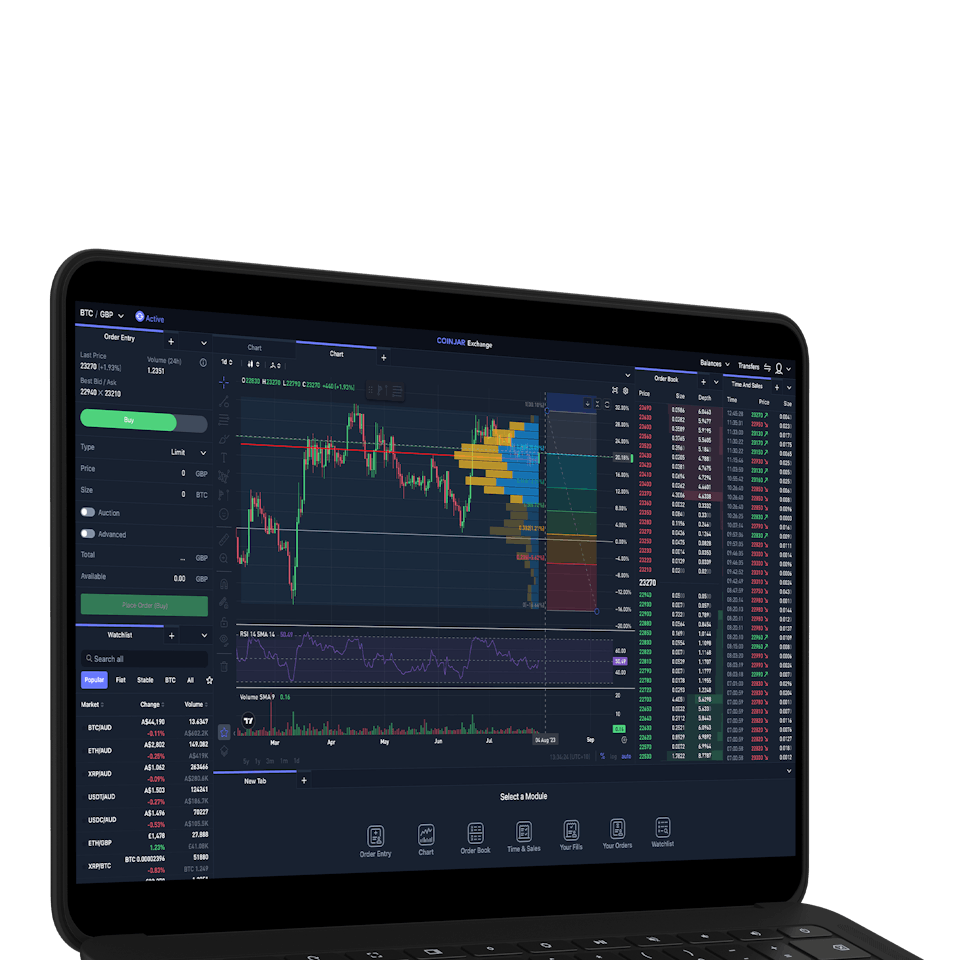
CoinJar Exchange
FOR PROFESSIONAL CRYPTO TRADERS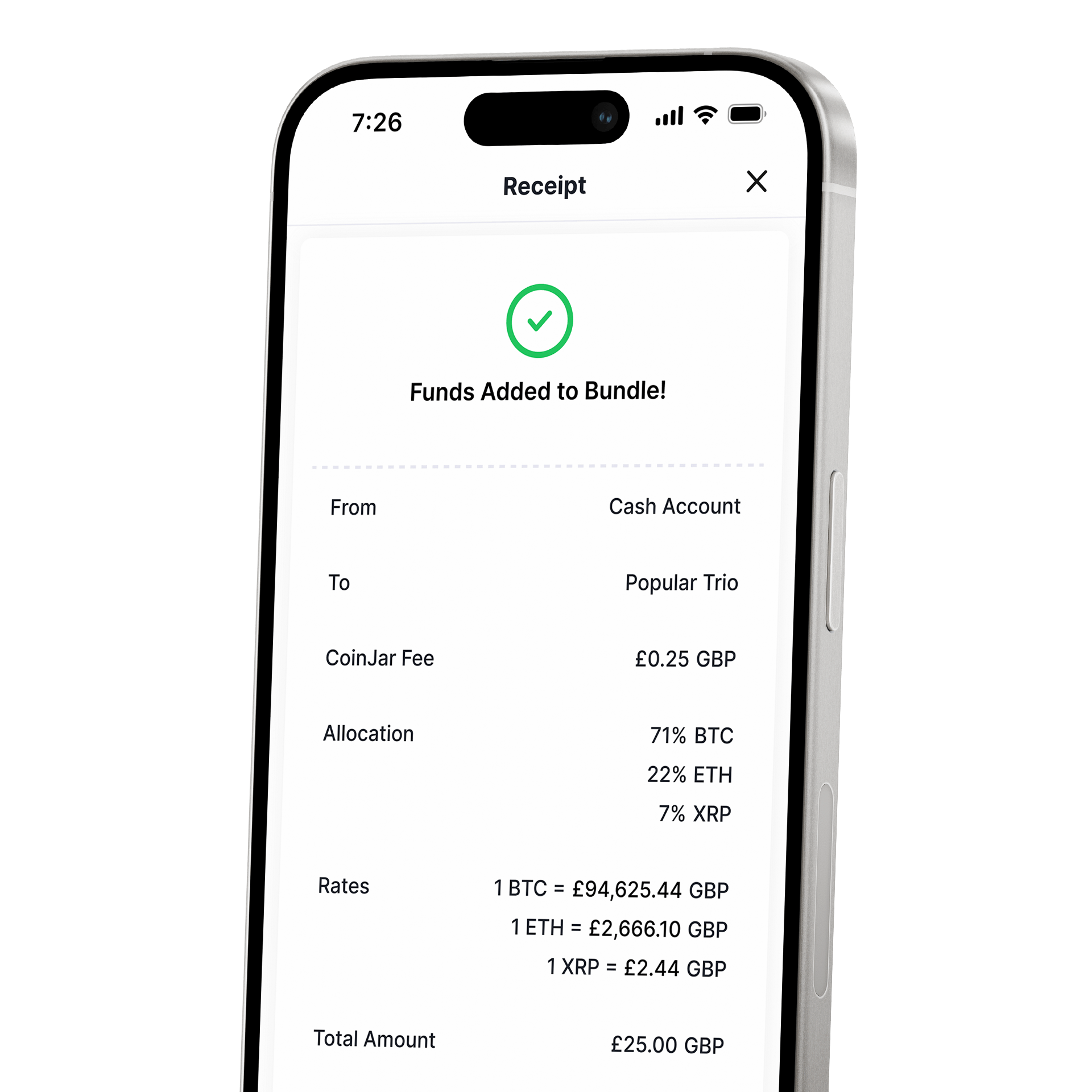
CoinJar DCA & Bundles
AUTOMATE & DIVERSIFY YOUR PORTFOLIOCoinJar DCA & Bundles
AUTOMATE & DIVERSIFY YOUR PORTFOLIO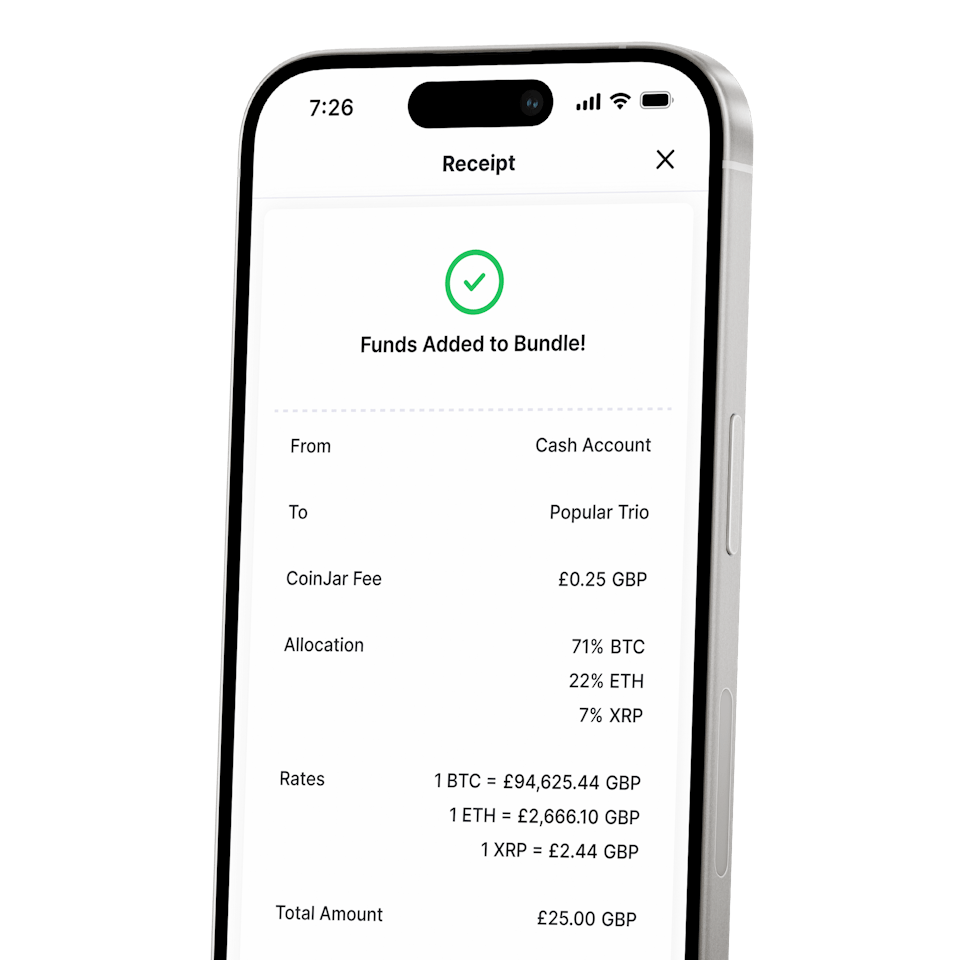
Frequently asked questions
What is the price of Loopring (LRC)?
The price of Loopring (LRC) can fluctuate due to market demand and supply. You can check the current LRC price at the top of this page.
Do investors need a bank account to buy Loopring?
Loopring operates as a decentralised exchange, so it doesn’t directly involve traditional bank accounts. However, you can link your crypto wallet to your bank account for fiat deposits and withdrawals.
What kind of cryptocurrency exchange is Loopring?
Loopring is an Ethereum-based decentralised exchange (DEX) that allows users to trade various tokens without relying on a centralised intermediary.
Can investors buy LRC with Pounds Sterling (GBP)?
You can buy and sell LRC using Pounds Sterling.
What is the LRC token?
LRC is Loopring’s native utility token. It’s used for governance, staking, and transaction fees within the Loopring ecosystem.
What is an Automated Market Maker (AMM)?
Loopring uses AMM technology to provide liquidity for trading pairs. AMMs automatically adjust prices based on supply and demand.
What is the Ethereum Network?
Loopring operates on the Ethereum blockchain, leveraging its protection and smart contract capabilities.
How can investors trade Loopring?
To trade LRC on Loopring, connect your wallet, deposit funds, and explore the available trading pairs.
What are order books?
Loopring’s order books aggregate liquidity from various sources, ensuring efficient trading.
How can investors Buy/Sell LRC?
You can buy or sell LRC directly on CoinJar by following the above instructions.
Is Loopring a Decentralised Exchange (DEX)?
Loopring is a DEX, meaning it doesn’t rely on a central authority. Users trade directly from their wallets.
What is a smart contract?
A smart contract is a self-executing program or code that runs on a blockchain. It automatically enforces predefined rules and conditions, facilitating trustless and transparent interactions between parties without the need for intermediaries.
Loopring’s protocol is built on Ethereum smart contracts.
Does Loopring use cold storage?
Loopring doesn’t hold user funds directly. Instead, it operates non-custodial wallets.
What does the Loopring Protocol do?
The Loopring protocol facilitates order matching, settlement, and fee distribution.
What right does holding Loopring LRC give?
LRC represents the Loopring ecosystem. Holders participate in governance and earn rewards.
Can investors buy Loopring with a credit card?
Loopring doesn’t directly support credit card purchases. However you can buy LRC on CoinJar with a credit card.
How do investors find out live cryptocurrency prices?
Loopring provides real-time prices for various tokens, including LRC.
What is the trading experience claimed by Loopring?
Users appreciate Loopring’s competitive fees, better performing transactions, and decentralised nature for a seamless trading experience.
Standard Risk Warning: The above article is not to be read as investment, legal or tax advice and it takes no account of particular personal or market circumstances; all readers should seek independent investment advice before investing in cryptocurrencies.
The article is provided for general information and educational purposes only, no responsibility or liability is accepted for any errors of fact or omission expressed therein. Past performance is not a reliable indicator of future results.
We use third party banking, safekeeping and payment providers, and the failure of any of these providers could also lead to a loss of your assets. We recommend you obtain financial advice before making a decision to use your credit card to purchase cryptoassets or to invest in cryptoassets. Capital Gains Tax may be payable on profits.
CoinJar's digital currency exchange services are operated in the UK by CoinJar UK Limited (company number 8905988), registered by the Financial Conduct Authority as a Cryptoasset Exchange Provider and Custodian Wallet Provider in the United Kingdom under the Money Laundering, Terrorist Financing and Transfer of Funds (Information on the Payer) Regulations 2017, as amended (Firm Reference No. 928767). In the UK, it's legal to buy, hold, and trade crypto, however cryptocurrency is not regulated in the UK.
It's vital to understand that once your money is in the crypto ecosystem, there are no rules to protect it, unlike with regular investments. You should not expect to be protected if something goes wrong. So, if you make any crypto-related investments, you're unlikely to have recourse to the Financial Services Compensation Scheme (FSCS) or the Financial Ombudsman Service (FOS) if something goes wrong.
The performance of most cryptocurrency can be highly volatile, with their value dropping as quickly as it can rise. Past performance is not an indication of future results. Remember: Don't invest unless you're prepared to lose all the money you invest. This is a high-risk investment and you should not expect to be protected if something goes wrong. Take 2 mins to learn more at: https://www.coinjar.com/uk/risk-summary.
UK residents are required to complete an assessment to show they understand the risks associated with what crypto/investment they are about to buy, in accordance with local legislation. Additionally, they must wait for a 24-hour "cooling off" period, before their account is active, due to local regulations. If you use a credit card to buy cryptocurrency, you would be putting borrowed money at a risk of loss.
We recommend you obtain financial advice before making a decision to use your credit card to purchase cryptoassets or to invest in cryptoassets.
Specific risks associated with DeFi tokens Decentralised Finance (or 'DeFi') tokens (e.g. UNI, AAVE) are crypto-assets linked to financial applications and protocols built on decentralised blockchain technology. DeFi tokens carry the following risks:
Smart contract risk: DeFi relies heavily on smart contracts. Even a minor coding error or oversight can lead to a contract being exploited, potentially resulting in significant losses for DeFi tokens.
Regulatory risk: DeFi operates in a decentralised manner, often without intermediaries or financial crime controls. Regulatory bodies across jurisdictions might introduce new regulations impacting the use, value, or legality of certain DeFi protocols or assets.
Rug-pulls / Exit scams: Some DeFi projects might be launched by anonymous or pseudonymous teams, increasing the risk of "rug pulls" where developers abandon the project and withdraw funds, leaving investors with worthless tokens.
Data/oracle risk: DeFi protocols often rely on external data sources or 'oracles. Manipulation or inaccuracies in these data sources can lead to unintended financial outcomes within the protocols. Protocol complexity: The complexity of some DeFi protocols can make it difficult for average users to fully understand the mechanisms and associated risks.
Specific risks associated with meme coins:
'Meme coins' (e.g. DOGE, SHIB, PEPE) are crypto-assets whose value is driven primarily by community interest and online trends.
Meme coins carry the following risks:
Volatility risk: Meme coins can have extreme price volatility, often experiencing rapid and unpredictable price fluctuations within short periods. The value of meme coins can be influenced by social media trends, celebrity endorsements, and other factors unrelated to traditional investment fundamentals. Lack of utility: Meme coins often lack intrinsic value or utility, being primarily driven by community interest, online trends, and speculative trading.
Market manipulation: Meme coins may be susceptible to increased risk of market manipulation including 'pump-and-dump' schemes, where the price is artificially inflated followed by a sudden crash.
Lack of transparency: Meme coins may have limited available information about their development teams, goals, and financials. This lack of transparency can make it challenging to assess the credibility and potential of a meme coin accurately.
Emotional investing: Meme coins often garner strong emotional reactions from investors, leading to impulsive decisions. Emotional trading activity can amplify losses.
Specific risks associated with stablecoins:
There is a risk that any particular stablecoin may not hold their value as against any fiat currency; or may not hold their value as against any other asset. Stablecoins carry the following risks:
Depegging events: Depegging events may occur with stablecoins that fail to maintain adequate controls and risk mitigants. A depegging event is when the value of the stablecoin no longer matches the value of the underlying asset. This could result in a loss of some or all of your investment.
Counterparty risk: Counterparty risk arises when an asset is backed by collateral, involving a third party maintaining the collateral, which introduces risk if the party becomes insolvent or fails to maintain it.
Redemption risk: Redemption risk refers to the possibility that an asset's ability to be redeemed for underlying collateral may not be as anticipated during market fluctuations or operational issues.
Collateral risk: Collateral risk refers to the possibility of the collateral's value declining or becoming volatile, potentially impacting the asset's stability, particularly when it is another crypto-asset.
Exchange rate fluctuations: Stablecoins, often denominated in US Dollars, expose investors to fluctuations in the USD:GBP exchange rate. Algorithmic risk: Algorithm risk refers to the possibility of an asset's stability being compromised due to unexpected failure or behaviour of the underlying algorithm, potentially leading to loss of value.
CoinJar does not endorse the content of, and cannot guarantee or verify the safety of any third-party websites. Visit these websites at your own risk.
Your information is handled in accordance with CoinJar’s Privacy Policy.
Cryptoassets traded on CoinJar UK Limited are largely unregulated in the UK, and you are unable to access the Financial Service Compensation Scheme or the Financial Ombudsman Service.
We use third party banking, safekeeping and payment providers, and the failure of any of these providers could also lead to a loss of your assets.
We recommend you obtain financial advice before making a decision to use your credit card to purchase cryptoassets or to invest in cryptoassets. Capital Gains Tax may be payable on profits.
CoinJar’s digital currency exchange services are operated in the UK by CoinJar UK Limited (company number 8905988), registered by the Financial Conduct Authority as a Cryptoasset Exchange Provider and Custodian Wallet Provider in the United Kingdom under the Money Laundering, Terrorist Financing and Transfer of Funds (Information on the Payer) Regulations 2017, as amended (Firm Reference No. 928767).
Apple Pay and Apple Watch are trademarks of Apple Inc. Google Pay is a trademark of Google LLC.
This site is protected by reCAPTCHA and the Google Privacy Policy and Terms of Service apply.

